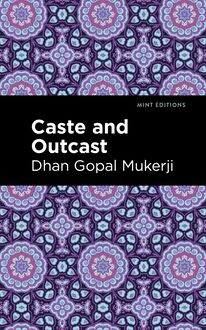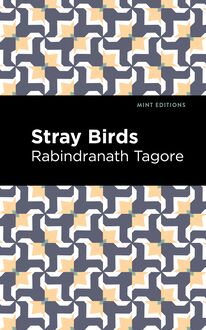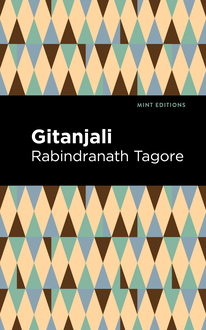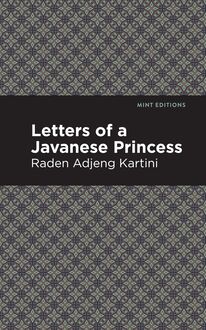-
 Univers
Univers
-
 Ebooks
Ebooks
-
 Livres audio
Livres audio
-
 Presse
Presse
-
 Podcasts
Podcasts
-
 BD
BD
-
 Documents
Documents
-
- Cours
- Révisions
- Ressources pédagogiques
- Sciences de l’éducation
- Manuels scolaires
- Langues
- Travaux de classe
- Annales de BEP
- Etudes supérieures
- Maternelle et primaire
- Fiches de lecture
- Orientation scolaire
- Méthodologie
- Corrigés de devoir
- Annales d’examens et concours
- Annales du bac
- Annales du brevet
- Rapports de stage
La lecture à portée de main
Vous pourrez modifier la taille du texte de cet ouvrage
Découvre YouScribe en t'inscrivant gratuitement
Je m'inscrisDécouvre YouScribe en t'inscrivant gratuitement
Je m'inscrisEn savoir plus
Vous pourrez modifier la taille du texte de cet ouvrage
En savoir plus

Description
The Philosophy of Rabindranath Tagore (1918) is an academic study by Sarvepalli Radhakrishnan. Published at the beginning of his career as one of India’s leading professors of comparative religion, the work is a masterful investigation of the teachings of poet-philosopher Rabindranath Tagore. In 1913, Tagore was awarded the Nobel Prize in Literature, making him the first lyricist and non-European to be awarded the distinction. Over the next several decades, Tagore wrote his influential novel The Home and the World (1916), toured dozens of countries, and advocated on behalf of Dalits and other oppressed peoples. “Rabindranath’s teaching, with its vital faith in the redeeming power of the spiritual forces and their up-building energy, has a particular value at the present moment, when the civilized world is passing through the crucible of a ghastly war which, whether or not it purges the nations of their pride and hate, lust for gold and greed of land, at least proclaims, in no uncertain tones, the utter bankruptcy of materialism.” In this masterwork of twentieth century criticism, Sarvepalli Radhakrishnan explores the philosophical teachings of Rabindranath Tagore, a leading artist and intellectual of modern India. Divided into five chapters, the book explores the interrelation of poetry and philosophy in Tagore’s work, his influence on Indian culture, and the meaning of his contribution to the nations of the world. With a beautifully designed cover and professionally typeset manuscript, this edition of Sarvepalli Radhakrishnan’s The Philosophy of Rabindranath Tagore is a classic of Indian literature reimagined for modern readers.
Sujets
Informations
| Publié par | Mint Editions |
| Date de parution | 12 octobre 2021 |
| Nombre de lectures | 0 |
| EAN13 | 9781513213705 |
| Langue | English |
| Poids de l'ouvrage | 1 Mo |
Informations légales : prix de location à la page 0,0450€. Cette information est donnée uniquement à titre indicatif conformément à la législation en vigueur.
Extrait
The Philosophy of Rabindranath Tagore
Sarvepalli Radhakrishnan
The Philosophy of Rabindranath Tagore was first published in 1918.
This edition published by Mint Editions 2021.
ISBN 9781513215709 | E-ISBN 9781513213705
Published by Mint Editions®
minteditionbooks.com
Publishing Director: Jennifer Newens
Design & Production: Rachel Lopez Metzger
Project Manager: Micaela Clark
Typesetting: Westchester Publishing Services
C ONTENTS P REFACE I . T HE P HILOSOPHY OF R ABINDRANATH T AGORE II . T HE P HILOSOPHY OF R ABINDRANATH T AGORE— II III . P OETRY AND P HILOSOPHY IV . T HE M ESSAGE OF R ABINDRANATH T AGORE TO I NDIA V . T HE M ESSAGE OF R ABINDRANATH T AGORE TO THE W ORLD
P REFACE
T he book explains itself. The popularity of the writings of Sir Rabindranath Tagore shows that there is neither East nor West in the realm of spirit, and that his work meets a general want and satisfies a universal demand. What is the demand, and how it is met, are questions which I have tried to answer in this book.
In interpreting the philosophy and message of Sir Rabindranath Tagore, we are interpreting the Indian ideal of philosophy, religion, and art, of which his work is the outcome and expression. We do not know whether it is Rabindranath’s own heart or the heart of India that is beating here. In his work, India finds the lost word she was seeking. The familiar truths of Hindu philosophy and religion, the value of which it has become fashionable to belittle even in the land of their birth, are here handled with such rare reverence and deep feeling that they seem to be almost new. My acquaintance with the soul of India from which Sir Rabindranath draws his inspiration has helped me in the work of exposition.
It may be said against this book that the author is trying to find a definite meaning where there is none, and is confusing his views with those of Sir Rabindranath. This charge raises a question too wide to discuss within the limits of a preface. But it must be remembered that Rabindranath writes poetry, while this book is in prose. Poetry is indefinite and suggestive, while prose is definite and expressive. What I have done here is simply to convert the vague suggestions of the poet into definite statements, supply the premises, draw out the conclusions, and give the setting where necessary. The book is an attempt to interpret Rabindranath’s philosophy in the light of its own fundamental principles. I may here mention that the poet has been pleased to express his appreciation of this interpretation of his philosophy.
As the book would be lacking in wholeness without an account of Rabindranath’s views about Nationalism in the East and the West, we have noticed his views on this subject in Chapters IV and V, keeping literally close to his writings while giving an inward account of them.
It is the privilege of a preface to acknowledge obligations. I am very grateful to Sir Rabindranath Tagore for the permission given me to dedicate the book to him. Not to speak of the pleasure derived from association with such an honoured name, I seem to myself to repay in some degree the great obligation I owe him for having left a permanent impression on my mind, by inscribing this slender volume with his name. I am greatly indebted to Mr. C. F. Andrews of Shantiniketan for reading the proofs and making many valuable suggestions. My thanks are also due to the Editor of The Quest for granting me permission to use the two articles which originally appeared in his journal.
S. R ADHAKRISHNAN
M ADRAS , May 27, 1918
I
T HE P HILOSOPHY OF R ABINDRANATH T AGORE
I
In vast life’s unbounded tide
They alone content may gain
Who can good from ill divide
Or in ignorance abide—
All between is restless pain.
Before Thy prescience, power divine,
What is this idle sense of mine?
What all the learning of the schools?
What sages, priests, and pedants?—Fools!
The world is Thine, from Thee it rose
By Thee it ebbs, by Thee it flows.
Hence, worldly lore! By whom is wisdom shown?
The Eternal knows, knows all, and He alone.
— O MAR
“The condemnation which a great man lays upon the world is to force it to explain him.” 1 Rabindranath Tagore has not failed to force the world to come with its magazine articles and monographs to expound his views. The worldwide interest and popularity of his writings are due as much to the lofty idealism of his thoughts as to the literary grace and beauty of his writings. Rabindranath’s teaching, with its vital faith in the redeeming power of the spiritual forces and their up-building energy, has a particular value at the present moment, when the civilised world is passing through the crucible of a ghastly war which, whether or not it purges the nations of their pride and hate, lust for gold and greed of land, at least proclaims, in no uncertain tones, the utter bankruptcy of materialism.
To be great is not merely to be talked about, it is also to be misunderstood, and Rabindranath has not escaped this fate. The many attempts made to explain him contradict each other, for “from the words of the poet men take what meanings please them.” There are two views regarding his philosophy of life. If we believe one side, he is a Vedantin, a thinker who draws his inspiration from the Upanishads. If we believe the other, he is an advocate of a theism more or less like, if not identical with, Christianity. Rabindranath inclines to the former view. “To me the verses of the Upanishads and the teachings of Buddha have ever been things of the spirit, and therefore endowed with boundless vital growth; and I have used them, both in my own life and in my preaching, as being instinct with individual meaning for me, as for others, and awaiting for their confirmation my own special testimony, which must have its value because of its individuality.” 2 Rabindranath’s philosophy by life is viewed by this school as nothing but the ancient wisdom of India restated to meet the needs of modern times. His writings are a commentary on the Upanishads by an individual of this generation on whom the present age has had its influence. The soul of ancient India is mirrored in them. His idealism is a true child of India’s own past and his philosophy is thoroughly Indian both in origin and development. In Dr. Coomaraswami’s words, “the work of Rabindranath is essentially Indian in sentiment and form.” The other view holds that Rabindranath Tagore, like other regenerators of Hinduism, has freely borrowed from Christianity and Western teaching, and has woven these alien elements into the woof of his own faith. If he does not confess his indebtedness to the West, it is, in the words of the Spectator’s reviewer, a case of “local patriotism,” “ingratitude,” and “insincerity.” 3 “We have Mr. Tagore employing his remarkable literary talents in teaching borrowed Ethics to Europe as a thing characteristically Indian.” “There is a fatal flaw of insincerity in its most seemingly elevated utterances.” 4 These critics believe that the morals and philosophy underlying Rabindranath’s thought are essentially Christian. They identify the Vedanta philosophy with a doctrine that makes the absolute an abstract beyond, the world an illusion, contemplation the way of escape, and extinction of soul the end of man. Obviously Rabindranath is not all this. He gives us a “human” God, dismisses with contempt the concept of the world-illusion, praises action overmuch and promises fulness of life to the religious soul. These are essentially the features of the Christian religion, and what is Rabindranath Tagore if not a typical Christian of the type spiritual India would produce in larger numbers in years to come? The Rev. Mr. Saunders remarks: “The God of Gitanjali is no impersonal, imperturbable absolute of Hindu philosophy, but in fact, whether He be explicitly Christ or not, He is at least a Christ-like God, and the experience of His suppliant and lover is one with the deep core of all Christian experience.” 5 The Rev. Mr. Urquhart observes: “He opened his soul to the ideas of the West and he has drawn from Christianity, especially, ideas the influence of which upon his whole trend of thought has not always been acknowledged. The Eastern dress which he has given to these ideas has often concealed both from his own eyes and those of his readers their true origin, and although truth is one and inhabits no particular clime, absence of indication here has sometimes led to consequences prejudicial to the development of truth itself. The ideas of Rabindranath, like those of so many thinkers of modern India, have often been quite wrongly assigned to Indian sources.” 6 Mr. Edward J. Thompson, who calls it “nonsense” to say that Gitanjali represents “true Hinduism,” observes: “The man who henceforward must rank among the great religious poets of the world does not call himself a Christian: but in him we get a glimpse of what the Christianity of India will be like, and we see that it is something better than the Christianity which came to it.” 7
There is no use dogmatising at the very outset, for that would be to attack the central question at issue. An impartial exposition of Rabindranath’s views would set at rest all doubts and disputes. We do not find any systematic exposition of his philosophy of life in any of his writings. Even Sādhanā is a book of sermons, or mystic hymns, or perhaps meditations. It is a sigh of the soul rather than a reasoned account of metaphysics; an atmosphere rather than a system of philosophy. But we feel that the atmosphere is charged with a particular vision of reality. In his writings we have the reaction of his soul to the environment, his attitude in the face of life. His personality is completely revealed in his poems, which are the unconscious expression of his soul, the outpourings of his devotional heart, and the revelation of his poetic consciousness. His writings must and do contain suggestio
-
 Univers
Univers
-
 Ebooks
Ebooks
-
 Livres audio
Livres audio
-
 Presse
Presse
-
 Podcasts
Podcasts
-
 BD
BD
-
 Documents
Documents
-
Jeunesse
-
Littérature
-
Ressources professionnelles
-
Santé et bien-être
-
Savoirs
-
Education
-
Loisirs et hobbies
-
Art, musique et cinéma
-
Actualité et débat de société
-
Jeunesse
-
Littérature
-
Ressources professionnelles
-
Santé et bien-être
-
Savoirs
-
Education
-
Loisirs et hobbies
-
Art, musique et cinéma
-
Actualité et débat de société
-
Actualités
-
Lifestyle
-
Presse jeunesse
-
Presse professionnelle
-
Pratique
-
Presse sportive
-
Presse internationale
-
Culture & Médias
-
Action et Aventures
-
Science-fiction et Fantasy
-
Société
-
Jeunesse
-
Littérature
-
Ressources professionnelles
-
Santé et bien-être
-
Savoirs
-
Education
-
Loisirs et hobbies
-
Art, musique et cinéma
-
Actualité et débat de société
- Cours
- Révisions
- Ressources pédagogiques
- Sciences de l’éducation
- Manuels scolaires
- Langues
- Travaux de classe
- Annales de BEP
- Etudes supérieures
- Maternelle et primaire
- Fiches de lecture
- Orientation scolaire
- Méthodologie
- Corrigés de devoir
- Annales d’examens et concours
- Annales du bac
- Annales du brevet
- Rapports de stage

















